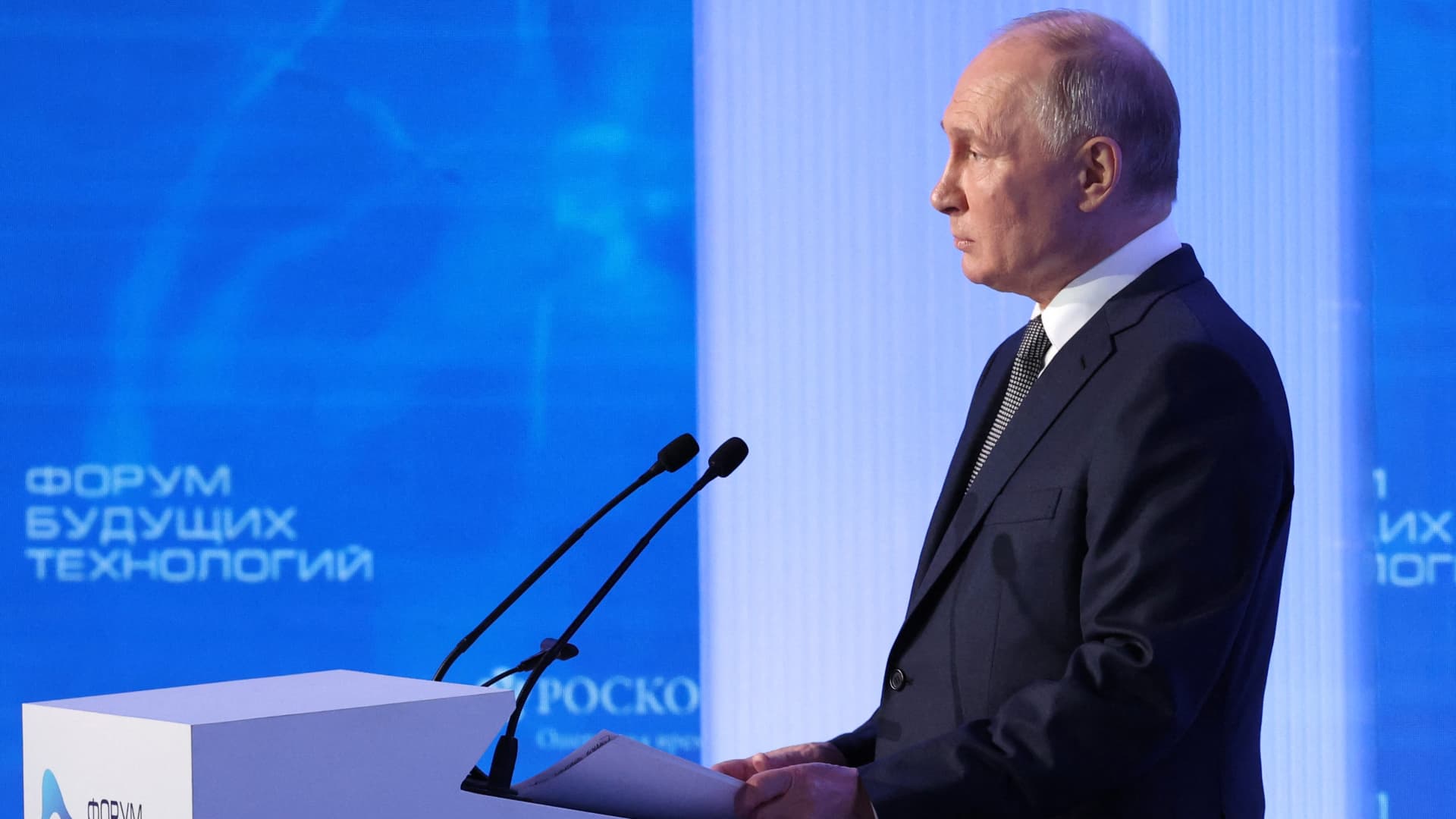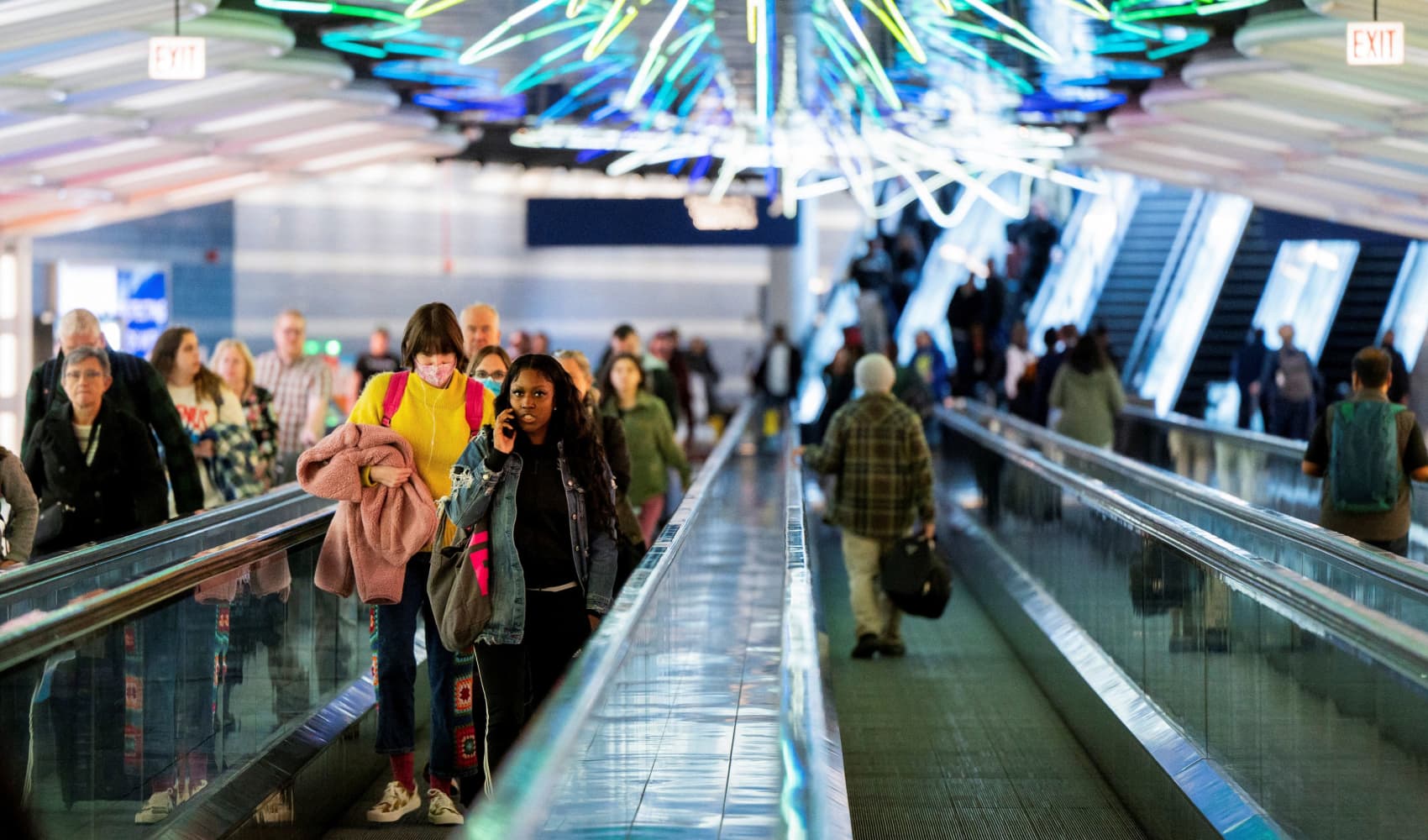
- Russian President Vladimir Putin said Russia is united, as it faces challenges to its sovereignty posed by the "colonial West."
- "We shall overcome everything together," Putin said as he introduced his address, praising Russian citizens, businesses and troops in Ukraine for their efforts in defending "the Motherland."
- He led a minute's silence to honor Russia's armed forces, praising the "colossal" battlefield experience they had gained in the two years of fighting in Ukraine.

Watch NBC6 free wherever you are
Russian President Vladimir Putin warned NATO countries of the danger of a nuclear conflict with Moscow, if NATO troops were deployed on the ground in Ukraine.
"[The West] must realize that we also have weapons that can hit targets on their territory. All this really threatens a conflict with the use of nuclear weapons and the destruction of civilization. Don't they get that?" Putin said in his annual state-of-the-nation address Thursday, according to an EBU feed.
Get local news you need to know to start your day with NBC 6's News Headlines newsletter.
The comments appeared to be a direct response to French President Emmanuel Macron's suggestion earlier this week that European heads of state and Western officials, who had met in Paris on Monday, had talked about the possibility of sending ground troops into Ukraine.
The French leader on Monday said that there was no consensus on the idea, but that it had not been "ruled out."
The comments have since sent NATO countries scrambling to deny they'd send troops into Ukraine, with Russia warning that such a deployment would prompt an "inevitable" Russia-NATO conflict.
Money Report
In his speech to Russian lawmakers on Thursday, which lasted more than an hour, Putin accused the West of trying to drag Moscow into an "arms race," adding that Russia was ready for dialogue with the U.S. on "strategic stability," but would not be forced into talks.
He said Russia is united as it faces the threats of "international terrorism" and challenges to its sovereignty posed by the "colonial West" that, he said, was trying to "bring discord to our home."
'Prepared to solve the most difficult tasks'
"We shall overcome everything together," Putin said as he introduced his address. He praised Russian citizens, industries and businesses, along with the country's troops in Ukraine, for their efforts in "defending the Motherland."
"We have proven that we are prepared to solve the most difficult tasks and rise to the most difficult challenges," Putin said.
"For example, we have repelled the aggression of international terrorism, we have preserved the unity of the country, we have stopped it being torn apart, we have supported our brothers and sisters and their desire to be with Russia," he said. "Our Motherland is standing up for its sovereignty and security."
The Russian leader led a minute's silence to honor Russia's armed forces, then extolled the "colossal" battlefield experience they gained during the two years of fighting in Ukraine.
Putin said Russian forces were on the offensive and were "liberating" new territories in Ukraine, once again repeating unsubstantiated claims that Russia is seeking to overthrow a "Nazi" regime in the country. He added that the West had provoked the conflict in Ukraine, and the Middle East.
Domestic economy
Putin then turned to domestic matters, encouraging Russians to have large families and indicating his desire to tackle low incomes and increase life expectancy in Russia.
Measures to support the economy and Russian industries were also announced, with Putin calling for the domestic production of consumer goods, medicines and vehicles to increase. He also encouraged businesses to invest in the country, calling for taxes on small and medium-sized companies to be cut.
The speech Thursday was delivered to around 1,000 lawmakers and officials, faith leaders, diplomats and journalists. As was the case last year, participants in Russia's "special military operation" (code for war) in Ukraine have also been invited to the event — Putin's 19th address of its kind.
The topics of the address are not usually revealed ahead of the speech, but Putin said last week that the upcoming message takes into account "the internal political calendar" and would set Russia's goals for the next six years.
His speech comes less than a month before the presidential election on March 15-17 that Putin is expected to win given the lack of nonsystemic opposition figures in Russia.






